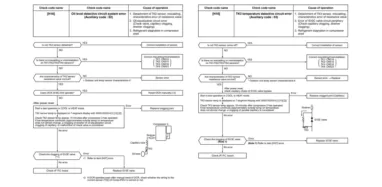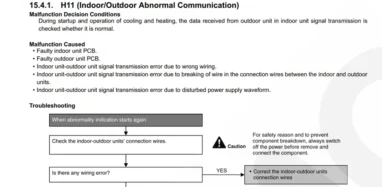No one can deny the comfort and convenience of an air conditioner, but to get the best cooling experience from the unit, you must take care of it properly.
Water and debris are the two significant factors that can affect an air conditioner’s performance and life. We can protect the unit from both of these things, but we may have to take some extra steps when it comes to rain. Most people ask the question, can rain damage an air conditioner?
Well, keep reading the article to know the answer and experts’ tips that will guide you to protect air conditioners from rain and eventually increase the unit’s performance and life.
Will rain damage a window air conditioner?
Window air conditioners are widely used when it comes to cool up a small space. They are efficient, inexpensive, easy to install, and can work flawlessly without any significant maintenance. The only thing that should be kept in mind is protecting it from the rain.
Can rain damage air conditioner? Yes, if the window air conditioner is installed at the wrong place or not appropriately fixed, rainwater can easily damage the air conditioner. It is vital to get the services of an experienced team to install the window air conditioner as they will analyze the whole space before picking up a suitable place for the unit.
Wires, sockets, coils are any electric thing that is not insulated correctly can cause major damages if the rainwater enters their body. The water can cause a spark, and if the air conditioner is kept on running for a long time while it is raining outside, there are huge possibilities that the unit may stop working or may catch fire as well.
Will rain damage a portable air conditioner?
No doubt, rain can damage your portable air conditioner, especially if it is not protected or maintained properly. Like all the other electronic accessories, portable air conditioners also require protection so that the water cannot come in contact with the wires or any other electronic components.
Water is the biggest enemy of electronic components, and below is a brief explanation of what conditions rain can cause to damages to a portable air conditioner.
Internal components can be damaged
The portable air conditioner includes a drainage mechanism that allows the unnecessary moisture to flow out of the unit through various components through self-evaporation or by the components such as water collection tanks or a drainage hose.
If the rainwater got stuck in the unit and its components remain submerged in the water, it will damage the internal components and eventually fail them completely. In the worst case, the unit can catch fire if the electronic components contact the water.
Dirt and water can form a coating
If the air conditioner is not maintained periodically, dust and debris can accumulate in the unit. When the water enters that unit, it forms a mixture, and this mixture can form a solid coating around the coils, tubes, and pipes.
This will block the coils from absorbing heat from the indoor environment leading to less effective and bad cooling performance. The mud should be removed as soon as possible because it can put a heavy load on the compressor, which can result in overheating the unit as well.
How to protect ac outdoor unit from rain?

As you know that rain can be a huge threat to the unit but many precautions can help you to protect your air conditioner from rain and avoid all minor to major damages without putting yourself in any trouble. The list to protect the air conditioner from rain includes the following:
- Never Install the AC Unit on the Ground
- Cover the AC Outdoor Unit
- Keep the Unit OFF During the Rain Storm
- Install the Air Conditioner at a Clear Spot
- After the Rain, Inspect the Unit Before Turning it ON
Never Install the AC Unit on the Ground:
- Never place the air conditioner’s outdoor unit on the ground or a roof because this will increase the chances of getting into trouble during the rain.
- The first recommendation is to place the unit under a shade so that the rain cannot get close to the unit.
- Secondly, always prefer to install the unit above the ground in an elevated area.
- Your air conditioner unit should also be installed above the rainwater line on a wall or a stand so that the water can’t reach it from the surface.
Cover the AC Outdoor Unit:
- If there is a forecast about the rain or storm, cover the air conditioner’s outdoor unit with a plastic sheet of canvas.
- The debris can be there in the air conditioner but if you put a cover on the unit, it will prevent water from entering the unit and mixing with the dirt or debris.
- If the rain is immense, put adhesive tape around the unit to ensure that the unit cannot be uncovered due to huge rain or storm.
Keep the Unit OFF During the Rain Storm:
- Keep your air conditioner OFF during the rain because the rain can cause major damages only if it is in running condition.
- It is recommended to unplug the unit and make sure that the air conditioner is not connected to any power source.
- If there is an electricity outage due to the rain, never plug in the power cord to the electric source even if the rain has stopped because sudden surges of the electricity can also cause damages.
Install the Air Conditioner at a Clear Spot:
- Never install the unit totally under trees or bushes because this will increase the ratio of dirt and debris.
- Cut down the bushes especially the ones that are dried because dry sticks can cause major damages if they get inside the air conditioning unit.
After the Rain, Inspect the Unit Before Turning it ON:
- Never turn the unit ON, immediately after the rain stops.
- Check the unit thoroughly to ensure there are no damages.
- Look inside the system to see if there is any water, leaves, or debris inside the unit.
If there is water in the unit, remove the water and let the unit dry before turning it ON.
We also strongly encourage you to learn how to protect ac outdoor unit from sunlight and how to secure ac unit from theft to ensure your air conditioning units are fully protected.


